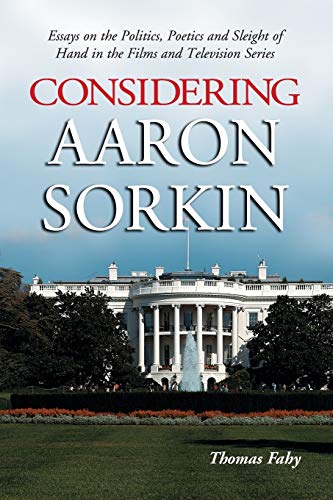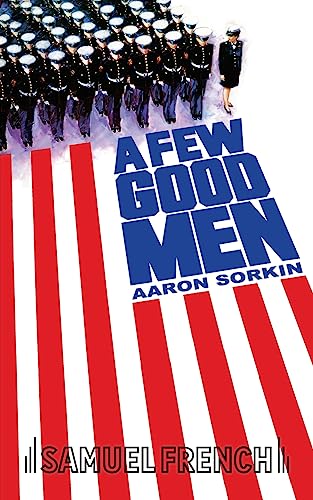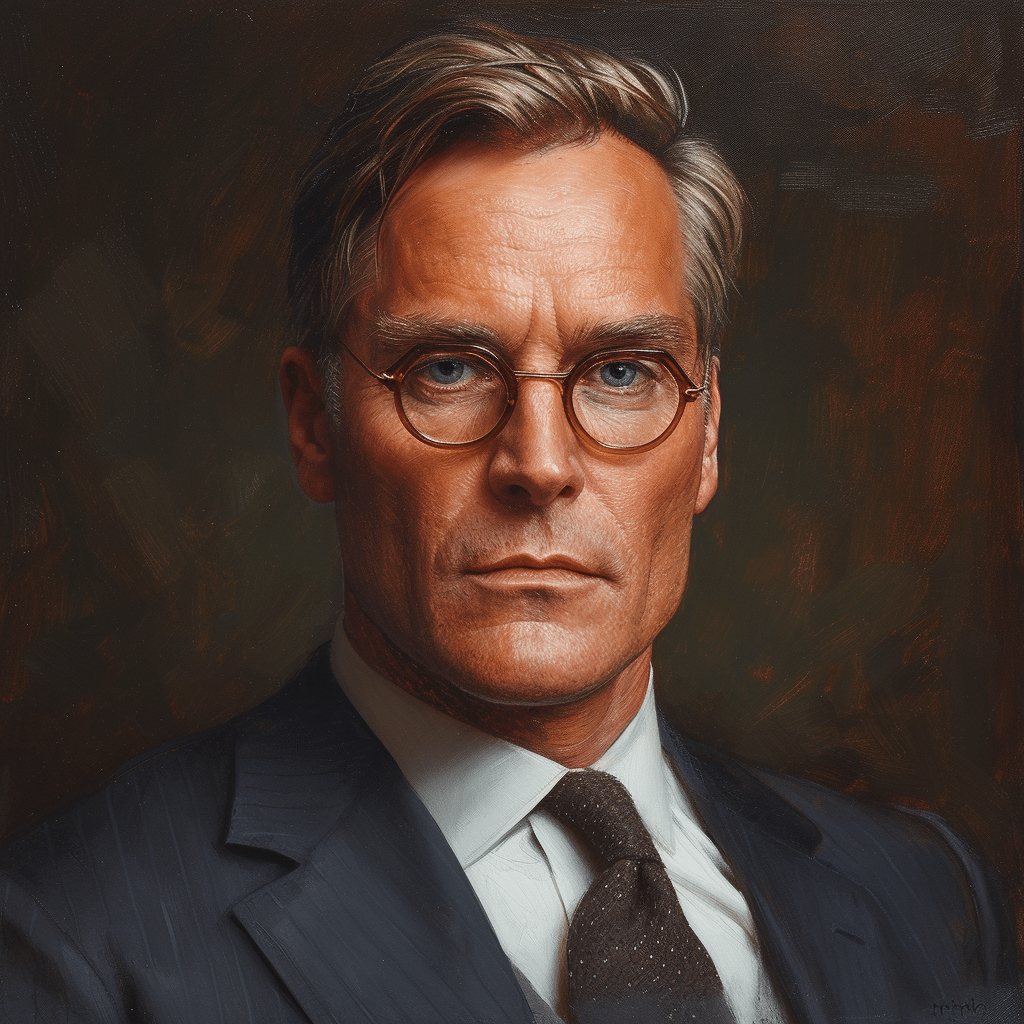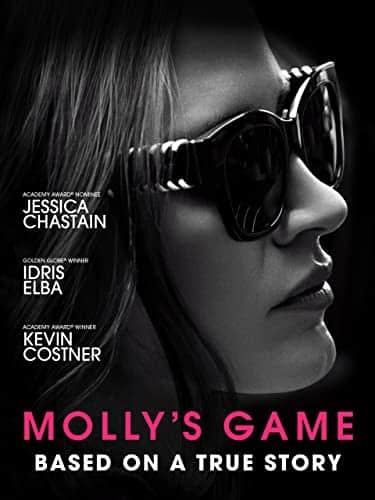In the ever-turning pages of entertainment history, the moment has arrived where we ink the final chapter of Aaron Sorkin’s illustrious journey in Hollywood. Known for churning out such narrative tapestries that have draped over us like the timeless classics at a thrift store where every thread tells a story, Sorkin has painted the skies of our cultural fabric with hues of drama and wit. Now, as he sets down his pen and leaves his typewriter to collect memories and dust, we indulge in the denouement of Aaron Sorkin.
Aaron Sorkin: The Mind Behind the Screenplay Masterpieces
How do you curtain-call a life when its stage has been the soul of so many stories? Aaron Sorkin didn’t just write screenplays; he composed symphonies of dialogue, where each character’s voice harmonized in a crescendo of intellect and intensity. Beginning with “A Few Good Men,” which roared like a thunderous applaud in courtrooms and continued with the political ballet of “The West Wing,” Sorkin’s signature rapid-fire dialogue and moral complexity sung through the screen.
He poured the very essence of his being into every line, letting “The Social Network” resonate with the clashing orchestra of innovation and ego, and lifted us with the buoyant undertow of hope in “The Newsroom.” Each creation wasn’t just entertainment; it was Sorkin’s confetti of thoughts scattered across the plains of pop culture.
Considering Aaron Sorkin Essays on the Politics, Poetics and Sleight of Hand in the Films and Television Series

$29.95
“Considering Aaron Sorkin: Essays on the Politics, Poetics and Sleight of Hand in the Films and Television Series” is a thoughtful and comprehensive collection that dissects the narrative genius of one of the most influential screenwriters and producers of our time. This book offers a series of essays that delve into the complex landscape of Sorkin’s work, from the intricate political tapestries of “The West Wing” to the rapid-fire dialogue that characterizes “The Social Network”. Each essay explores the unique blend of political engagement and narrative poetics that underpin his most celebrated projects, providing readers with nuanced insights into his storytelling approach and thematic concerns.
The authors of the essays analyze not only the content but also the techniques Sorkin employs to captivate his audience, looking at his distinctive use of dialogue, character development, and structural rhythm. They argue that Sorkin’s work is a form of sleight of hand wherein he simultaneously educates, entertains, and engages viewers, often weaving together idealism with a stark portrayal of the political and media landscapes. By examining the subtleties of his craft, the book paints a picture of a writer who challenges and transcends the conventions of screenwriting.
With a foreword by a renowned film critic and contributions from scholars in the fields of political theory, literature, and film studies, “Considering Aaron Sorkin” is as multifaceted as the man it studies. It is an essential read for fans of Sorkin’s work, students of film and television narrative, and those interested in the intersection of politics and popular culture. This book promises to not only dissect the works of Aaron Sorkin but also to illuminate the broader implications of his artistic vision on contemporary storytelling.
The Quill Lays Down: Sorkin’s Unanticipated Announcement
But now, the world shuddered to a halt, and eyes blinked in disbelief as Sorkin declared he would be stepping away from his stage. It wasn’t just an email bulletin or a Twitter whisper. The news broke like a fourth wall, unexpected and candid, amid a Manhattan backdrop where city lights flickered in solidarity. His words echoed a sober reality that even the mightiest quills need rest. The man who once illuminated Tom Hardy’s brilliance in his Movies, now contemplates a silence, leaving many to wonder what battle cried foul.

| Category | Details |
|---|---|
| Full Name | Aaron Benjamin Sorkin |
| Date of Birth | June 9, 1961 |
| Place of Birth | Manhattan, New York City, U.S. |
| Notable Work as Creator/Showrunner | Sports Night (1998–2000), The West Wing (1999–2006), Studio 60 on the Sunset Strip (2006–07), The Newsroom (2012–14) |
| Oscar Achievement | Best Adapted Screenplay for “The Social Network” (2010) |
| Recent Health Event | Suffered a stroke in November 2022 |
| Current Age | 61 years old |
| Departure from The West Wing | Reasons included personal problems, studio disagreements, and burnout as a producer |
| Relationship with ‘The West Wing’ | No ill will toward the show despite departure; regards it as a success |
| Recent Project | Writing the first Broadway musical, “Camelot” (as of 2023) |
| Change in Outlook | Altered perspective on life following his stroke, according to an interview with The New York Times |
| Professional Influence | Known for fast-paced dialogue and complex characters in his screenwriting |
Scripting Goodbyes: The Motivation Behind Sorkin’s Exit
Why does an artist lay down their brush? Is it the exhaustion of painting worlds or the thirst to live in one not of their making? As the anecdotes unfurl, we uncloak the array of personal battles and backstage frictions. The man who carved the rivalries on screen ohio state Vs georgia) faced his own adversities. Burnt out, yet the muse of countless silver linings, Sorkin speaks with a candor that doesn’t scorn “The West Wing,” the very show he soared to fame with; instead, he harbors an affection for this chapter, even as he gently closes it. No contempt, just the subtle poetry of a finale.
Behind the curtain lurks the private trials—a stroke that while shaping “Camelot” struck him with brutal irony. In its wake, not just a physical reckoning, but an introspection that glints with transformation. Sorkin, now a testament to human fragility, emerges with his outlook on life altered as he recollects his November scare. The industry whispers, the fans murmur, and we see a man not bowing out but stepping aside with a quiet reverence for life’s unforeseen acts.
The Final Act: Aaron Sorkin’s Swansong Project Details
As we pivot towards the last act of Sorkin’s career, one can’t help but wonder if “Camelot” is both a beginning and an end—a first foray into the world of Broadway musicals, yet perhaps his final bow. Sorkin’s choice to bring the Round Table’s legend to the stage feels almost autobiographical, encapsulating his pursuit for idealism and the brittle nature of human valor.
Themes of nobility and the pursuit of a better world resonate in this farewell piece, striking a chord that echoes Sorkin’s own ethos. In the narrative of “Camelot,” we glimpse reflections of Sorkin’s past works: the making and unmaking of heroes and the subplot of governance—threads he’s woven so deftly throughout his career.
The West Wing The Complete First Six Seasons (Pack Boxset) by Aaron Sorkin (Creator)

$119.95
“The West Wing – The Complete First Six Seasons Boxset” is an immersive television drama masterpiece created by Aaron Sorkin that offers viewers an exceptional look into the intricate workings of the fictional Bartlet administration. This compelling series features an ensemble cast, including Martin Sheen, Allison Janney, and Rob Lowe, who bring to life the fast-paced and witty dialogue that has become a hallmark of Sorkin’s work. Covering the first six seasons, this boxset provides a window into the noble pursuits, political wrangling, and personal trials faced by the senior staff of the Oval Office as they navigate the complex terrain of the American political landscape.
Each DVD in the luxurious pack is packed with rich, intelligent storylines that have earned the show critical acclaim, numerous awards, and a dedicated fan base hungry for smart, morally nuanced entertainment. Extra features included in the set such as behind-the-scenes footage, commentaries from the creators and cast, and exclusive deleted scenes, enrich the viewing experience, giving fans an in-depth look at the creative process behind the series. The boxsets comprehensive collection allows for a seamless binge-watching journey through the highs and lows of one of television’s most respected political dramas.
For collectors and new viewers alike, this collection is the perfect addition to any home library. The boxset not only gives you the chance to relive the tension and triumphs of President Josiah Bartlet’s administration but it also serves as a powerful reminder of the idealism that can thrive within the corridors of power. With rich character development and a deep respect for the intricacies of governance and policy, “The West Wing – The Complete First Six Seasons Boxset” is a timeless piece that continues to resonate with audiences around the world.
“A Sorkinian Twist”: Reactions and Speculations
The stage of reaction is set. Colleagues echo sentiments of pride and sorrow, media outlets buzz with retrospectives, and fans are held captive by a Sorkinian twist in the narrative—his departure. Like a jazz riff surprising the listener, speculation dances through the conversation. Will he return? Is this a sabbatical for the maestro? What does this mean for the characters we’ve grown to love and debate?
Amidst the musings, we delve into the gambit of his potential return. Does the man known for the propulsive dialogue of Grace Gummer ‘s characters have a second act in hiding? Or is this truly the final fade to black? As fans dissect his words, they cling to hope—a hope that perhaps Sorkin is not done surprising us.

The Pen That Inspired a Generation: Aaron Sorkin’s Influence on Screenwriting
The ink of Sorkin’s pen has indelibly marked countless budding storytellers. He’s taught us that dialogues are duels, where every word wields weight, and silence screams volumes. The learning curve was steep but lit with the luminescence of Aaron Sorkin’s teachings, inspiring scribes to sew complex characters and zesty exchanges into the fabric of film and television.
The looming vacancy of Sorkin’s presence makes us ponder the chasm in future narrative endeavors. Where will the next generation find the daring to duel with words as swords? How will the brisk walk-and-talks, the razor-sharp repartee, persist in his absence?
Beyond the Writer’s Room: Sorkin’s Impact Beyond Hollywood
Yet, Sorkin’s influence stretches beyond the bounds of the backlot. His words have woven into the societal tapestry, pressing against the edges of politics and public opinion. His tales are parables, moral crossroads that nudge the conscience, much like his characters riding the chip kelly past Teams Coached, each narrative driving forth an idea, championing debates.
In classrooms, teachers wield episodes of “The West Wing” as history lessons swathed in humanity. His work, fervent with underlying themes, nudges viewers to lean in closer, to contemplate not just the story but the world and their footprints within it.
A Few Good Men

$13.38
Title: A Few Good Men
A Few Good Men is a riveting courtroom drama that captures the essence of integrity and honor amidst a high-stakes legal battle in the U.S. Navy. Following the trial of two Marines charged with murder, the film showcases the moral dilemmas and the quest for truth within the confines of military law. Tom Cruise stars as the hotshot Navy lawyer, Lt. Daniel Kaffee, who alongside his team, played compellingly by Demi Moore and Kevin Pollak, finds himself questioning the motives behind the alleged crime and the code of silence enforced by the Marine Corps.
The narrative intensifies as the iconic Colonel Nathan R. Jessup, portrayed with formidable presence by Jack Nicholson, stands firm in his convictions about duty and the hard choices leadership demands. Charged with navigating through layers of deception and patriarchal authority, the defense team confronts their personal and professional challenges, seeking justice in a system that emphasizes order and rank over the individual. The script, intelligently adapted from Aaron Sorkin’s play, delivers dialogues that crackle with authenticity and a deep understanding of the military ethos.
Celebrated for its memorable performances and dynamic script, A Few Good Men has earned its place as a classic in American cinema, appealing to those who appreciate a story with compelling characters and moral complexity. Its iconic courtroom scenes have left an indelible mark on popular culture, famously epitomized by the line, “You can’t handle the truth!” The film not only entertains but also raises profound questions about the price of conformity, duty, and the value of speaking out when it matters most. A Few Good Men stands as a testament to the outstanding crafts of filmmaking and storytelling, where each line and scene resonate with the tension and the high stakes of the battle for integrity.
Legacy and the Future: What Aaron Sorkin Leaves Behind
From the luminescent chambers of theatres to the intimate corners of our living rooms, Aaron Sorkin has cultured a garden of narratives that has altered the ecosystem of storytelling. His legacy is a compendium of snap and intellect—a constellation of stories that have guided viewers home.
The stature of the torchbearers, those whom he has ignited with his vision, looms large. As creators, such as Natalie Nunn, don the mantle, the question isn’t what Sorkin has left behind but how far his influence will travel. Will the fiery dialogue dim, or will it burn brighter, fanned by the winds of those who follow? The answers remain in the echoes of his lessons, the R9 of relevance R9), always evolving.

Conclusion: The Final Fade to Black
In the quietude of Sorkin’s goodbye, there is an electric anticipation—for stories are immortal, their tellers ephemeral. Aaron Sorkin weaved words into wisdom, and now, as the lights dim, we’re reminded that while stories may end, their whispers carry forth in time’s endless corridor. He leaves not just a catalog of works but an invitation to the future, a challenge to embrangle the narrative thicket with the same verve, the same fervor.
For those aspiring to coat their hands in the lubriderm of creativity and take up the baton Lubriderm), remember that Sorkin’s excellence was no lightning in a bottle. It was a Chiltepin, small yet potent—a reminder that in the end, the legacy of a story well told isn’t measured in final bows but in the lives it continues to touch and transform.
As we gaze upon Sorkin’s artful goodbye, let us not mourn the silence but celebrate the symphonies yet to be composed in the wake of his departure. And perhaps, just perhaps, in each narrative that dares to be different, the echoes of Aaron Sorkin will continue to resonate, as hauntingly beautiful as the final fade to black.
The Fascinating World of Aaron Sorkin
Ah, Aaron Sorkin! The mere mention of his name immediately conjures images of rapid-fire dialogues, complex characters, and dramatic courtroom scenes that have you on the edge of your seat. Hey, whether you’re a die-hard fan of his work or just dipping your toes into the pool of his acclaimed productions, one thing’s for sure—you’re in for a witty and insightful ride.
“You Can’t Handle the Truth!” – Crafting Iconic Lines
Hold onto your hats, folks, because we’re about to dive into the world of a screenwriter who doesn’t just create characters—he gives them a voice that echoes across our cultural consciousness. Did you know that before Aaron Sorkin started penning scripts for the silver screen or enchanting us with his TV dramas, he was a struggling actor? Talk about a plot twist, right? But let’s face it, aren’t we all grateful he switched gears? Just imagine a world without “A Few Good Men”( and its indelible lines—now that’s a scary thought!
The West Wing: More than Just a Walk and Talk
Now, buckle up because we’re taking a stroll—Sorkin style—down the hallways of power. The West Wing, baby! This show didn’t just redefine political dramas; it taught us the art of the ‘walk and talk’—and boy, do folks eat that up! What’s more, Sorkin didn’t just give us a peek behind the curtain of the Oval Office; he made us feel like we were a part of the Bartlet administration—clipboard and all. By the end, you’d swear you’d gotten a crash course in political science without even trying. And if you’re craving a refresher on these groundbreaking series, the complete works of Aaron Sorkin( have got you covered.
From Page to Stage – Sorkin’s Theatrical Flair
Hang on to your playbills, show-goers. Did I mention that Aaron Sorkin’s talents aren’t just confined to the screen? Oh no, he’s got theater creds to boot! In fact, his return to Broadway with the adaptation of “To Kill a Mockingbird” was more than just a comeback—it was a cultural moment. Sorkin managed to transform a beloved classic into a modern masterpiece, and people couldn’t stop raving about it. If you think about it, it’s like he’s the maestro of the modern narrative, orchestrating every line to hit you right in the feels.
Behind-the-Scenes with Aaron Sorkin
Alright, let’s take a quick detour behind the scenes. Ever wonder how a scribe like Sorkin works his magic? Well, spoiler alert: it’s not just sitting in a room, tirelessly typing away. This guy’s creative process involves a whole lot of walking. Yes, you read that right! Aaron Sorkin breaks free from the conventional desk setup and likes to pace around to get those creative juices flowing. Talk about walking the walk! Intrigued? There’s a cornucopia of Aaron Sorkin interviews( that’ll give you a glimpse into the mind of the genius himself.
The Quintessential Sorkin-isms
So, here’s the deal—there’s no mistaking a Sorkin script. Why? Because it’s packed with Sorkin-isms, that’s why! What, might you ask, are Sorkin-isms? They’re those clever bits of dialogue, those recurring themes of morality and idealism, and those addictive monologues that just reel you in. He’s the king of crafting conversations that sound like a symphony and hitting you with a poignant point when you least expect it.
In conclusion, folks, Aaron Sorkin isn’t just a writer or a screenwriter; he’s a storytelling virtuoso. Whether it’s on stage, on your TV, or the cinema screen, his words have this unique power to entertain, educate, and inspire all at the same time. And let’s be real, we wouldn’t have it any other way. So, here’s to you, Mr. Sorkin—keep those stories coming, and we’ll keep reading between the lines.
Molly’s Game

$N/A
Molly’s Game is a riveting memoir-turned-film that tells the true story of Molly Bloom, a former Olympic-class skier who ran the world’s most exclusive high-stakes poker game before being caught by the FBI. The memoir details her journey from her early athletic career to the high-flying world of underground poker, where Hollywood’s elite, business tycoons, and unbeknownst to her, the Russian mob, came together around her table. With sharp wit and unyielding resolve, Bloom’s story unfolds as she builds her empire and eventually becomes the target of a major federal investigation.
Crafted with authenticity and gripping detail, Molly’s Game delves into the intensity of underground gambling and the complexities of federal law as it applied to her unique case. The story is a compelling look into the inner workings of poker psychology and Bloom’s struggle to maintain control over a world marked by excess and danger. Readers and viewers alike are taken on a roller coaster of highs and lows, demonstrating Bloom’s resourcefulness and determination to emerge from her legal challenges with her integrity intact.
The film adaptation, written and directed by Aaron Sorkin, features Jessica Chastain as Molly Bloom, who delivers a standout performance that embodies the intelligence and grit of the character. With high-stakes drama and Sorkin’s signature fast-paced dialogue, Molly’s Game captures the essence of the book while presenting an entertaining and thought-provoking cinema experience. Its a striking and inspirational tale of ambition, power, and the fine line between success and ethical boundaries, guaranteeing to keep the audience on the edge of their seats.
Why was Aaron Sorkin kicked off of West Wing?
– Hold your horses, Aaron Sorkin wasn’t exactly “kicked off” The West Wing! Let’s just say, he left the show quicker than a New York minute due to a cocktail of personal problems, intense studio disagreements, and feeling more fried than a carnival funnel cake. Despite splitting from his brainchild that became a ratings giant, Sorkin’s parting was without any bad blood.
What is Aaron Sorkin best known for?
– What’s Aaron Sorkin known for? Well, folks, he’s the maestro behind some TV gold with shows like “The West Wing” and “The Newsroom,” not to mention nailing it with “The Social Network” screenplay. Straight out of Manhattan, this writer’s been leaving his mark on television since his “Sports Night” days, and boy, he’s been keeping the hits coming.
What happened to Aaron Sorkin?
– Uh-oh, in a bit of worrying news, Aaron Sorkin recently opened up about suffering a stroke. At 61, this shocker came while he was diving into his Broadway musical debut with “Camelot.” Chatting with The New York Times, Sorkin shared this health scare that’s given him a fresh perspective on the daily grind.
Did Aaron Sorkin have a stroke?
– Yup, it’s true—Aaron Sorkin did have a stroke. This heavyweight of the writing world faced this health battle back in November, right in the thick of penning “Camelot” for Broadway. This stroke of bad luck (pun intended) hasn’t dimmed his sharp pen, though—he’s been speaking out and bouncing back.
Why did they write Toby off West Wing?
– Toby Ziegler’s exit from The West Wing had fans scratching their heads, but behind those closed White House doors, it was all about giving the story a dramatic twist that would make your grandma drop her knitting. It wasn’t Aaron Sorkin’s call, though—he’d already left the show in the rearview mirror by then.
Why did West Wing get Cancelled?
– Talking about cancellations always stings a little, huh? The West Wing didn’t get the boot—it just wrapped up its political drama after seven seasons of twists, turns, and powerhouse performances. Everything’s got to end sometime, even the good stuff.
Why did Rob Lowe leave West Wing?
– Rob Lowe decided to pack his bags and leave The West Wing, and it was a pretty hush-hush affair. Let’s just say, the rumor mill suggests there might have been some squabbles over the limelight and his paycheck, making him cut his stint as Sam Seaborn shorter than a Hollywood marriage.
Did Aaron Sorkin write all seasons of West Wing?
– Did Aaron Sorkin write all of The West Wing? Well, not to burst your bubble, but he left after season four, passing the pen to other talented scribes. So, no, he didn’t write the whole shebang, but those first four seasons? Pure Sorkin gold.
Does Aaron Sorkin still write?
– Does Aaron Sorkin still write? You bet he does! Despite his recent health scare and his roller coaster of a career, Sorkin’s still slinging sentences like a pro. He’s got the kind of comeback story that would put a tear in the eye of a statue.
Is Aaron Sorkin ill?
– Ill? Aaron Sorkin did have a bit of a health hiccup with that stroke, but he’s opening up and not shying away from the limelight. With true Sorkin flair, he’s facing his new normal with as much grit as one of his own characters.
Is Aaron Sorkin a Catholic?
– Sorkin being a Catholic would make for a great plot twist, but his religious views are kept closer to his chest than his next screenplay. So, whether he’s a man of the cloth or a wandering agnostic, that’s one secret he’s not broadcasting.
What episodes of West Wing did Sorkin write?
– Wondering which episodes of The West Wing Sorkin penned? Let me tell ya, that’s a long list, with his writing fingerprints on basically every episode for the first four seasons. His scripts were like a fine wine in a world of cheap beer—just class.
What has Aaron Sorkin done?
– From Broadway to the box office, Aaron Sorkin’s been there, done that—and got the Oscar to prove it. He’s still making waves, recently planning a return to the stage. So, what has he done? Better ask, what hasn’t he done?
What actress survived a stroke?
– While we’re on the topic of health scares, Sharon Stone’s the actress who famously survived a stroke. Bringing the same tenacity she’s known for on-screen, she tackled recovery head-on and has been an inspiration to many since.
Is Aaron Sorkin related to Ira Sorkin?
– Last but not least, let’s clear the air: Aaron Sorkin and Ira Sorkin aren’t family, just two peas from the same Big Apple. One scripts the drama, the other’s likely seen enough drama in the courtroom. No relation, just coincidence!